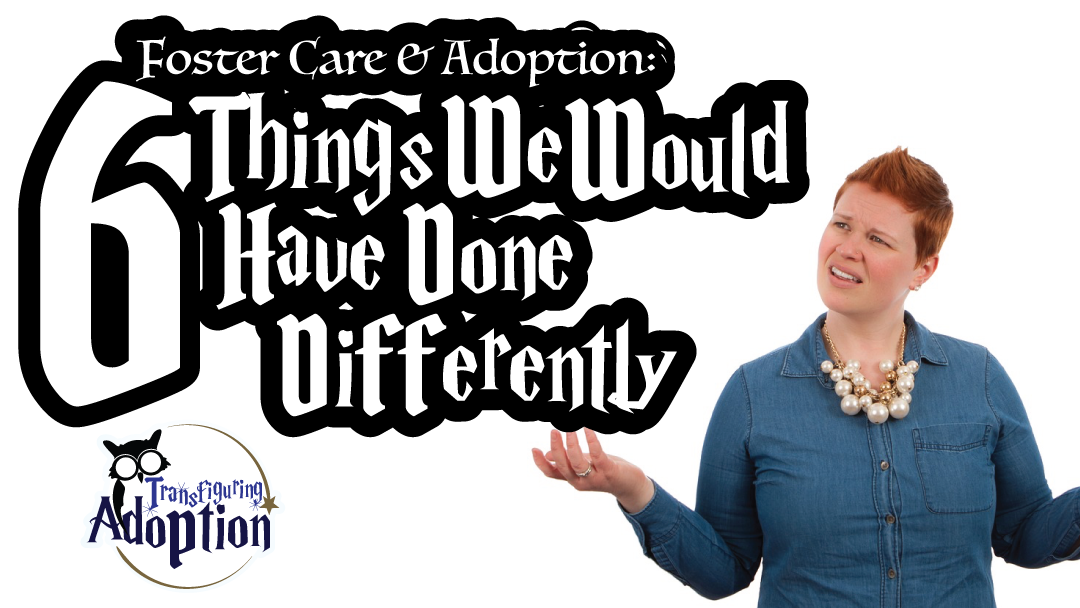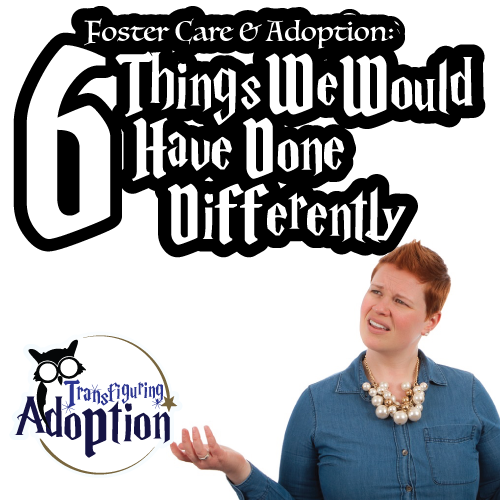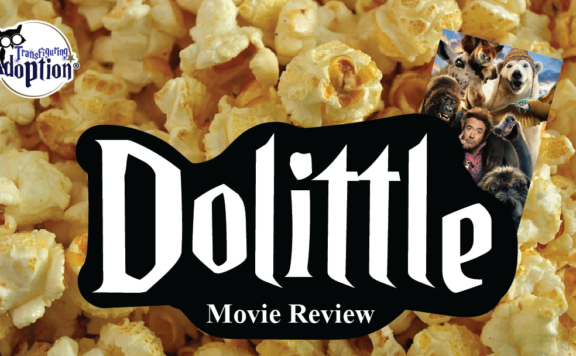This November it has been eight years since our first two kiddos were brought to our door and we plunged into the journey of parenting. We have certainly learned a lot in those eight years! We often get asked if we would do life any differently had we known back then what we know now. The answer is a most emphatic yes!
We were once told by a therapist on an adoptive family retreat that we and the other adoptive parents have got to stop “shoulding on” ourselves, that is to say that we must stop saying, “We should have…” or “We should be…” There’s danger in drowning in oceans of regrets, getting stuck, and not moving forward. BUT, there’s power in learning from our mistakes and sharing them with others, hopefully catching them earlier in their journeys. So, in the hope of helping others earlier in their journey…
Here Is What We Would Have Done Differently.
- Asked more questions prior to accepting placement
I’m not sure if we would have gotten anymore information or that it would have been accurate information, but I wish we would have asked more questions before plunging in with rose-colored glasses. At times, we feel we would have done things differently had we known that we were taking on four children with some very intense, long-term needs, one of which is going to need lifelong care (which was not communicated to us). We often feel we would have done a much better job of helping them heal if we had fewer children to concentrate on and weren’t so busy just trying to keep them all safe and their basic needs met. - Put in place better strategies to encourage attachment and bonding
There are so many strategies we have learned now, several years into our journey, that we didn’t know when our kids first moved in, and implementing them now would not have the same effect. We “should have” kept our family’s world small, creating a cocoon for bonding to take place in, and not introduced the children quickly to so many people and activities. We “should have” limited physical affection, gifts, and feeding to just us for a period of time. - Been more assertive
Foster-to-adopt parents are limited in the choices they can make and what they can do until adoption is finalized, and we advocated fiercely for our kids in some areas. But, there were areas in which we “should have” fought harder. The biggest example of this relates to school choice for one of our children. A year after placement, the agency’s education liaison—who’d never met the child, us, or the teachers before—looked at me in an Individualized Education Plan (IEP) meeting and said, “You’re not [x’s] mom. You can’t make this decision [regarding what school the child would attend].” I cried, mostly because I wanted to slap him and yell, asking “And who’s fault is that? After your agency hasn’t completed the adoption in 15 months!” The school social worker called later to check on me after what she declared the worst IEP meeting she had ever attended. I stopped fighting and later found out I had more rights than I knew. The child, who was thriving and growing in the school we had placed the child in the first year, flatlined at the school the agency chose and really has not progressed much at all in the 6 years since. I “should have” been more assertive. - Pushed for more evaluations
There are answers to our children’s challenges that we have just had answered in the last year or so, and looking back, I wish I would have asked for more evaluations earlier on so we could have implemented more interventions years ago. - Not used typical parenting strategies
In the early days of parenting, we used typical, mainstream parenting strategies, such as time-outs, rewards, and punishment. These were so ineffective, and we didn’t learn until at least a couple years into our journey why typical parenting strategies do not work with traumatized children, nor did we know what strategies would work better. Reading The Connected Child by Dr. Purvis, Dr. Cross, and Wendy Sunshine and Adopting the Hurt Child by Keck and Kupecky revolutionized our parenting strategies and changed our family, and I try to revisit them as often as possible to ensure I don’t fall back into old habits. - Not sweat the small stuff, picked our battles, and set the bar low
So I know that is a string of cliches, but making big deals out of small behaviors, taking on too many problematic behaviors at once, and expecting more age-appropriate behavior out of our children back when we didn’t know better definitely did not help bonding, attachment, and healing. We would have pretty well put aside homework battles, held kids that were “too big,” worked on big problems one by one, and so on had we known then what we know now.
I’m not sure how our family’s life would look had we done these six things differently. I can imagine several different outcomes. I know we can only be responsible for what we know at any given time…I just sure wish I would have known more eight years ago. I hope others can learn these lessons before we did on their journeys.
Now It’s Your Turn:
- What would you have done differently early in your foster care or adoption journey had you known then what you know now? Share so others can learn from your experiences.



Regina Kupecky
Thanks for the mention of our book, Did you read Parenting the Hurt Child as well? I also have a series of workbooks you might like. Check them out on amazon